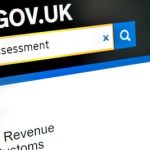The chancellor, Jeremy Hunt, delivered his autumn statement on Wednesday and in it announced increases in benefits and a cut in national insurance. We asked a taxpayer, a pensioner, a universal credit claimant and a parent for their views.
‘I hoped they’d be upping the tax thresholds’
Adam Houghton, 44, a psychological therapist from Leeds and a father of two, currently earns £50,952 before tax, but will see his pay rise to £57,349 next year, when he moves to the top of his NHS salary band.
Had the income tax thresholds been raised in line with inflation, today’s higher rate of 40% income tax would only kick in at £57,170, according to financial commentator Paul Lewis, and Houghton would have needed to pay the higher rate only on £179 of his annual pay in the new year, after his income increase.
But because thresholds have been frozen since April 2021, most of his pay rise will be taxed at 40%, meaning Houghton is one of millions of taxpayers affected by so-called fiscal drag.
Despite hopes that chancellor Jeremy Hunt might unfreeze the thresholds and bring tax brackets in line with inflation, the chancellor opted for a cut in national insurance instead.
Workers such as Houghton were given a bit of relief in the form of a two-percentage-point cut in NI, from 12% to 10%, but Houghton is “really disappointed”. He says: “I kind of got my hopes up that they’d be upping the tax thresholds. I’m on a good salary, but I do have two kids. We pay around a grand in nursery fees a month, and currently £1,250 for our mortgage – costs that absorb a lot of my salary. When our mortgage has to be renewed in July, it’ll rise to about £1,750 monthly, the cheapest rate I can find.”
He has been exploring ways to limit his taxable income, including opening a Sipp (self-invested personal pension). “However, that’s a strategy based on the idea that you have some slack in your budget, which we don’t. My family is finding the cost of living tough on our monthly budget. Food and energy have really increased. It must be really tough for people on less money: I have no idea how they’re managing.”
 View image in fullscreenJohn Hopkins has been dragged into paying tax on his pension by the freeze on personal allowances. Photograph: Jim Wileman/The Guardian
View image in fullscreenJohn Hopkins has been dragged into paying tax on his pension by the freeze on personal allowances. Photograph: Jim Wileman/The Guardian
‘He’s putting my pension up – but he’s getting it all back’
Seventy-seven-year-old John Hopkins, a pensioner from Devon, received the 10.1% state pension increase this year, in line with inflation, as well as a small rise on a private workplace pension he has from his time at Royal Mail.
Next April he will see his state pension go up by 8.5%, after the chancellor announced that the government will honour its costly commitment to the pensions triple lock.
“I’m not impressed,” says Hopkins. “He’s putting my pension up by 8.5% next year, but he’s getting it all back!”
Hopkins is one of many who have been dragged into paying tax on their pensions because of the continued freeze on personal allowances. “Last year I was paying £29 income tax a month on my Royal Mail pension, and this year, after the rises, I found my tax had risen to £50 a month,” he says.
“My state pension is now £224 a week, and my private pension should be £328 a month, but after tax it’s £278.92. So, despite the rises this year I hardly ever gained anything, I’m only about £2 a week better off.
“The same will happen next year: Hunt is putting more money into our pockets, but is dragging more people into paying more tax. He’s done nothing to help.”
‘A lot of the changes were aimed at working families’
 View image in fullscreenJo Rawle is unable to work because she stays at home to care for her son.
View image in fullscreenJo Rawle is unable to work because she stays at home to care for her son.
“This is surviving, not living,” says Jo Rawle of her family’s battle to make ends meet on universal credit. “I have to pick and choose which bills to pay each month and sometimes I can’t afford to buy food or nappies for my son. Pretty much all my money is gone the day it comes into my account.”
Rawle’s partner has a full-time job in the hospitality industry but the family, who live in Bideford in north Devon, depend on universal credit as the 25-year-old stays at home to care for her two-year-old son, Axel, who has complex additional needs. With a combined income of about £30,000 including universal credit, the couple, who pay £750 a month in rent, struggle to pay their bills and buy everything they need.
Rawle, who is supported by the local children’s centre run by the Action for Children charity, is relieved that after a long wait Axel’s application for disability living allowance has just been approved, meaning the family will receive an additional £68 a week as well as government help with childcare.
The family received the recent cost of living payment from the government, but Rawle says all of the money disappeared on energy bills and preschool sessions for the toddler, who has developmental and speech delays.
In the autumn statement, the chancellor confirmed that working age benefits will be uprated by 6.7% next year, with households on universal credit gaining an average of £470. There will also be more help with rent costs next year after he raised local housing allowance rates, with recipients about £800 a year better off on average.
Rawle said the benefits uplift was small set against cost of living pressures. “I feel like we are going to be in the same situation next year as we are now, especially in the colder months. I can’t work because of my son and I feel a lot of the changes were aimed at working families.”
 View image in fullscreenSophie Chatziapostolou with her daughter, Evie: ‘It will take a long time for this policy to encourage people back to work’. Photograph: Sam Frost/The Guardian
View image in fullscreenSophie Chatziapostolou with her daughter, Evie: ‘It will take a long time for this policy to encourage people back to work’. Photograph: Sam Frost/The Guardian
‘It would be brilliant to have paid-for childcare’
Sophie Chatziapostolou, 35, has a childminder for her daughter, Evie, two days a week. This costs the family about £600 a month – about a third of her earnings two days a week as a freelancer. “In terms of freelance work, budgets are tighter, so my work is more fragmented,” she says. “I’m working for four different organisations in those two days.”
Reacting to the autumn statement, in which Hunt said new welfare support and sanction measures would get 200,000 more people into the workforce, Chatziapostolou says it would be good to get more clarity on childcare plans. Hunt reiterated the provisions for 30 hours of free childcare for one- and two-year-olds that was announced in the spring budget. Chatziapostolou is unsure whether the changes will come in for April 2024, and she adds that “providers need to be paid the right amount” to provide these additional places.
She says that a large number of the nurseries in Bristol, where she lives, have shut down since the pandemic, “because things are so tough with staffing and costs … There are enormous waiting lists for the remaining ones.”
Chatziapostolou says: “We’re lucky enough to have a childminder – but here in Bristol you generally have to put your child on the nursery waiting list before they’re born if you want to go back to work at nine months.”
She says: “It would be brilliant to have paid-for childcare and it would definitely ease pressure on households like ours, but such a large number of people can’t access places that I think it will take a very long time for this policy to actually encourage people back to work.”
In response to the national insurance cut, she says that this would “help with the cost of living squeeze on households”; however, she feels tax cuts “usually tend to mean cuts to public services, which are already underfunded”.




